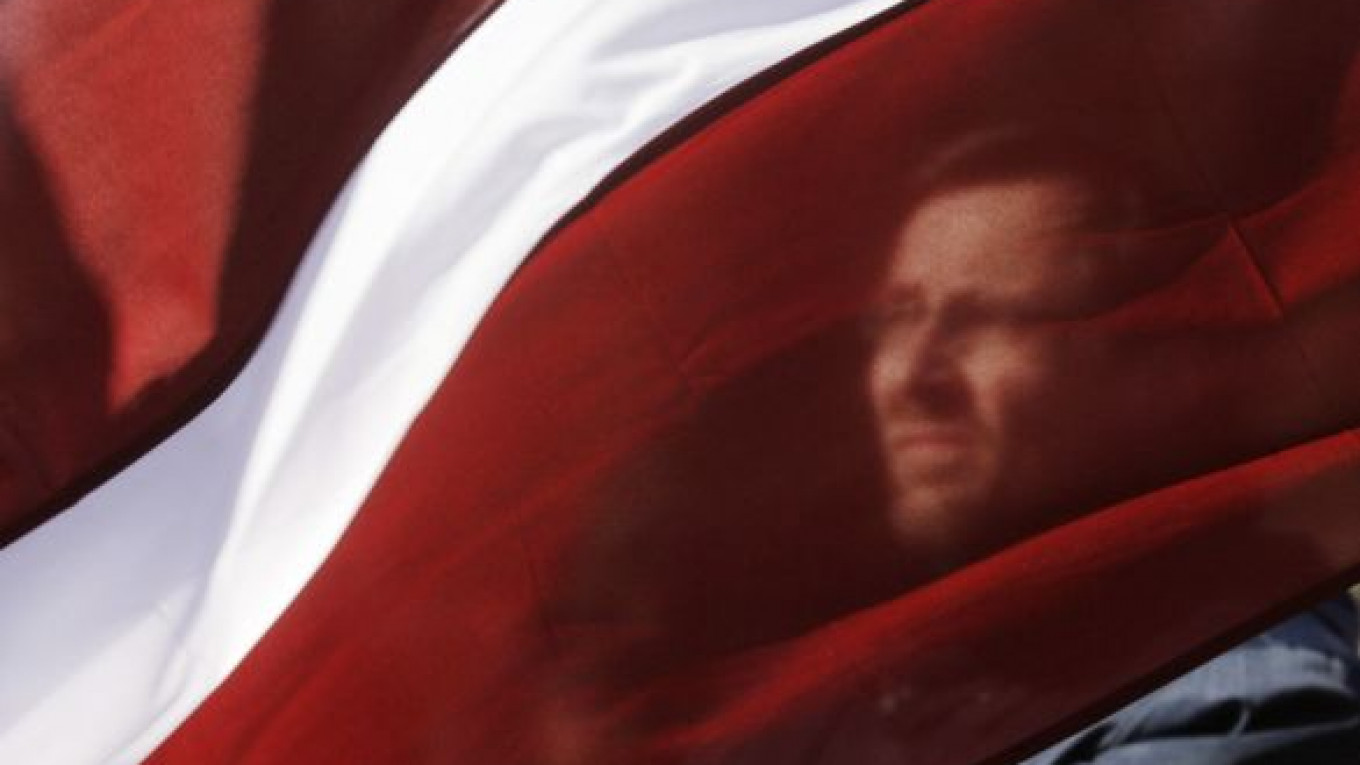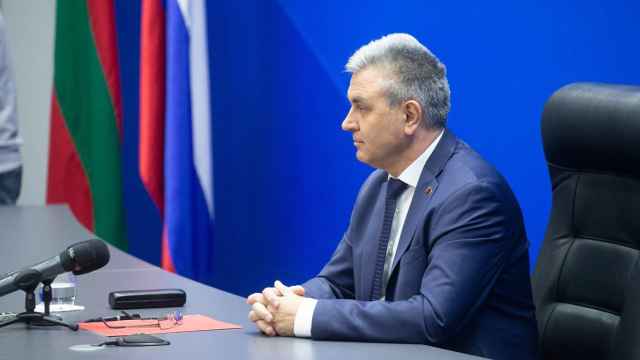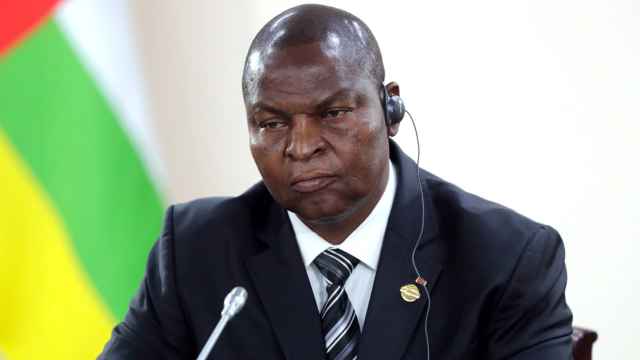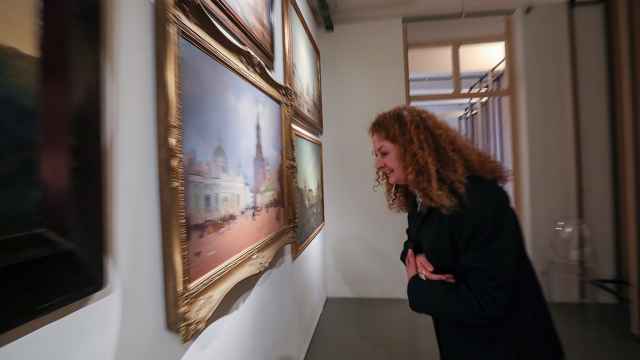RIGA, Latvia — More than 1,000 people paid tribute Wednesday to Latvians who fought on the side of Nazi Germany in Waffen SS detachments during World War II during a ceremony that has strained relations with Moscow.
Flanked by flag-bearers, participants in the annual procession sang patriotic songs and laid flowers at the base of the Freedom Monument in downtown Riga in honor of the Latvian SS soldiers, who are known as Legionnaires.
They were heckled by a small group of mainly ethnic Russians who claim the commemoration glorifies fascism and discredits the Soviet Union's enormous sacrifice in defeating Nazi Germany.
Protesters shouted "disgrace!" and "no to fascism!" while one held a poignant sign made from a pig's head that read "fascist, remember Nuremberg."
A massive police presence separated the two sides, and police officials said the ceremony, which has become a public relations headache for Latvia, passed without incident.
Participants were unfazed by the protest. "I am Latvian, and I want to honor those who fought for the country's freedom," said Inga Branka. She said the Latvians who fought in the war were neither fascists nor communists and that they had struggled to restore their lost independence.
Latvia was forcibly annexed by the Soviet Union in 1940, then invaded by Nazi Germany in 1941, and taken over again by the Red Army in 1944. The country remained a part of the Soviet Union until 1991, when it achieved independence.
About 250,000 Latvians fought alongside either the Germans or the Soviets — and some 150,000 Latvians died in the fighting.
Nearly 80,000 Jews, or 90 percent of Latvia's pre-war Jewish population, were killed in 1941-42, two years before the formation of the Latvian Waffen SS unit — which some Latvians claim shows the unit could not have played a role in the Holocaust.
But an unknown number of Latvian Waffen SS soldiers were involved in the murder of Jews as auxiliary police — years before they entered the front-line unit.
A Message from The Moscow Times:
Dear readers,
We are facing unprecedented challenges. Russia's Prosecutor General's Office has designated The Moscow Times as an "undesirable" organization, criminalizing our work and putting our staff at risk of prosecution. This follows our earlier unjust labeling as a "foreign agent."
These actions are direct attempts to silence independent journalism in Russia. The authorities claim our work "discredits the decisions of the Russian leadership." We see things differently: we strive to provide accurate, unbiased reporting on Russia.
We, the journalists of The Moscow Times, refuse to be silenced. But to continue our work, we need your help.
Your support, no matter how small, makes a world of difference. If you can, please support us monthly starting from just $2. It's quick to set up, and every contribution makes a significant impact.
By supporting The Moscow Times, you're defending open, independent journalism in the face of repression. Thank you for standing with us.
Remind me later.






